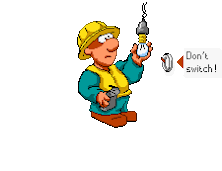CAUSE OR REASON
CONNECTORS (CAUSA O RAZÓN)
v BECAUSE (PORQUE) + ORACIÓN (SUJETO + VERBO + COMPLEMENTOS)
e.g. I took an aspirin because I had a headache.
v BECAUSE OF / DUE TO (DEBIDO A , POR…)
+ SN (DT + ADJ + SUST) / -ING VERB
e.g. I took an aspiring because of / due to my headache.
v SINCE / AS (YA QUE, PUESTO QUE) + ORACIÓN (SUJETO + VERBO +
COMPLEMENTOS)
e.g. Since / As I didn’t have any money, I couldn’t go to the party.
RESULT CONNECTORS
(RESULTADO)
v SO (ASI QUE) + ORACIÓN (SUJETO + VERBO + COMPLEMENTOS)
e.g. I had a headache, so I took and aspirin.
v THEREFORE (POR LO TANTO) + , + ORACIÓN (SUJETO + VERBO +
COMPLEMENTOS)
e.g. I had a headache. Therefore, I took an aspirin.
PURPOSE CONNECTORS
(FINALIDAD)
v TO / IN ORDER TO /
SO AS TO (PARA) + INFINITIVO (Sujetos iguales)
e.g. I work to / in order to /
so as to earn money.
v SO THAT (PARA) + ORACIÓN (SUJETO + VERBO (MODAL) +
COMPLEMENTOS) (Sujetos diferentes).
e.g. I work so that my children can have a good education.
INTENSIFIERS: SO
/SUCH (TAN)
v
SUCH + (A / AN) + ADJECTIVE + NOUN.
e.g. He was such a boring speaker that nobody paid attention to him.
v
SO + ADJECTIVE
e.g. The speaker was so boring that nobody paid attention to him.
INTENSIFIERS:
TOO /ENOUGH
v TOO + ADJETIVE (DEMASIADO) e.g. He is too short to be a basketball player.
v ADJECTIVE + ENOUGH (SUFICIENTE) e.g. He isn't tall enough to be a basketball player.
REWRITING
EXERCISES ON CONNECTORS
1. The children stayed at home because it was raining.
- As
__________________________________________________________________________________
2. We won’t buy that house because we don’t have enough
money.
- As
__________________________________________________________________________________
3. The children couldn’t go out to the playground because
it was raining.
- As __________________________________________________________________________________
4.
We bought our
tickets on the Web because it was much cheaper.
- Since
________________________________________________________________________________
5.
I felt really tired
so I stayed at home.
- I stayed
______________________________________________________________________________
6.
As it was Friday,
the children stayed up late.
- The children
__________________________________________________________________________________











